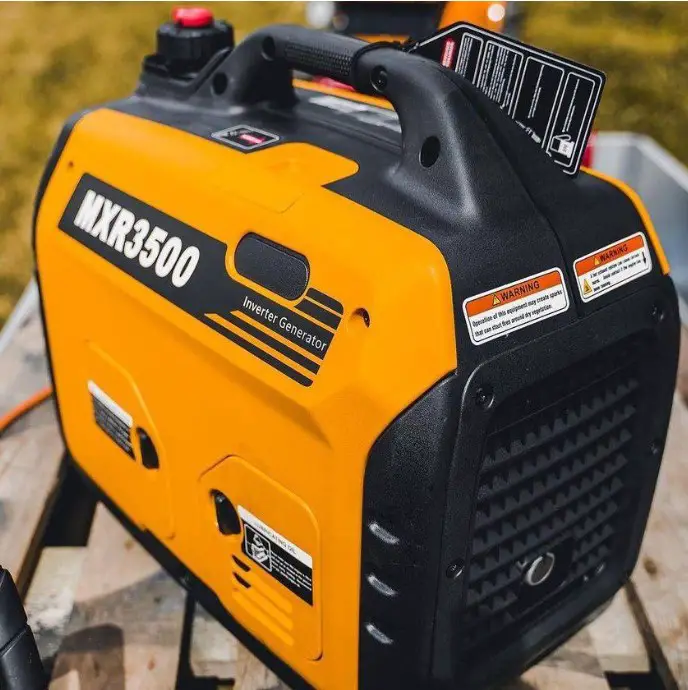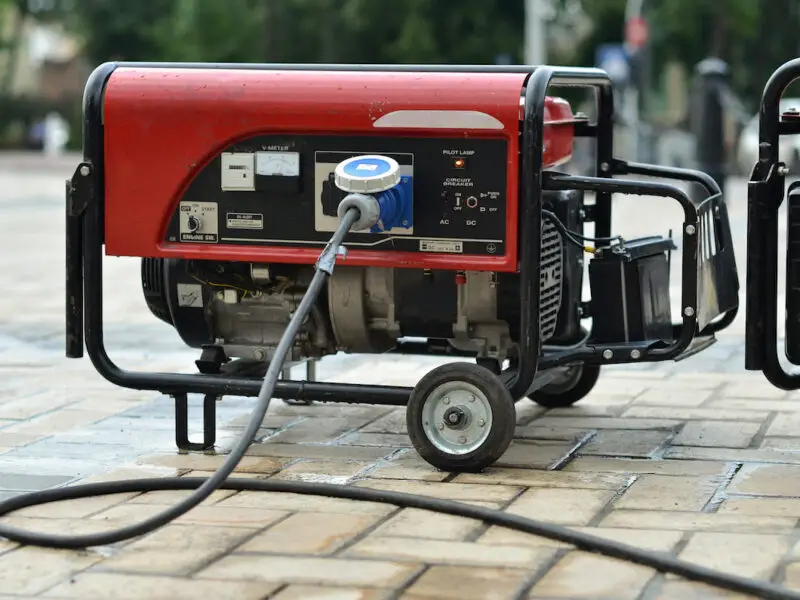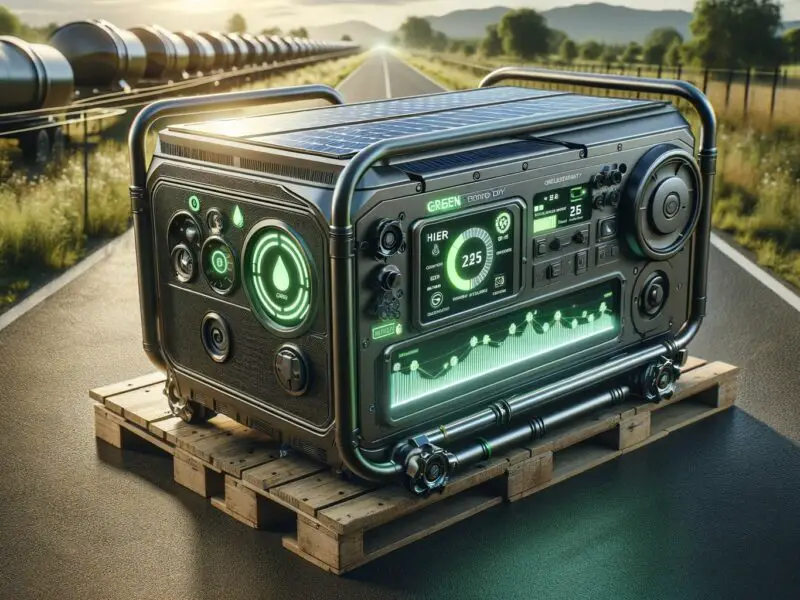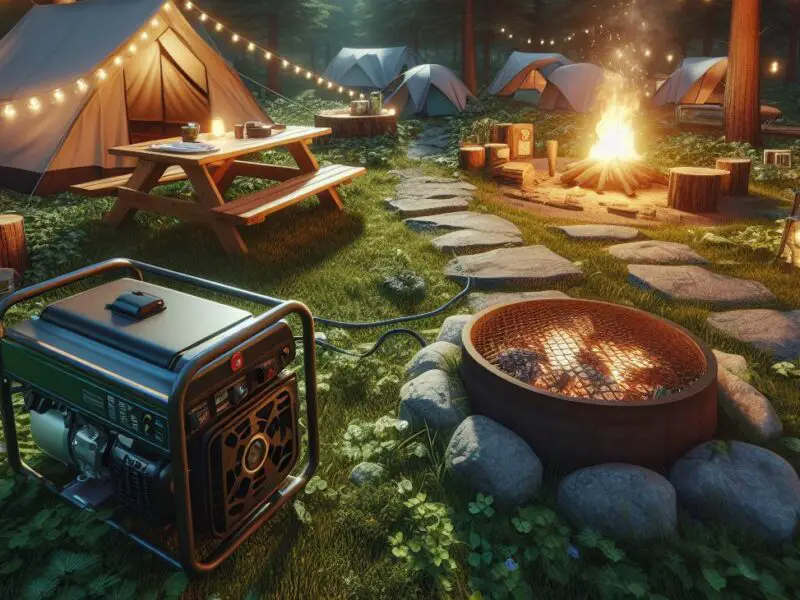
All of us know that we should prepare a portable generator during RV travel or outdoor camping, cause some typical things- air conditioner, microwave, and tv won’t work without 120-volt power. But why should we shop inverter generator? Compared to conventional portable generators, inverter units are more advanced: Greater fuel efficiency due to lower fuel requirements. Lower carbon emissions, making them more eco-friendly. Less distortion due to cleaner voltage. Conventional generators may damage many new electrical devices during powering, as they have a low Total Harmonic Distortion. But inverter units not, its voltage and frequency can be stable when during these devices.
How to choose the right generator?
Think of what wattage, safety, noise level, size & weight, and start method you want, then can narrow down your choice.
1. Wattage
The first thing should be wattage as you shop. Higher wattage equals higher power output as well as higher price. Around 3000 wattages light-middle generator is feasible for RV travel and emergency home use. If you are not sure how big of a generator do you need? Look at the below approximate running wattage of Common household appliances:
- Refrigerator/Freezer: 600 – 800
- Toaster: 1100 – 1700
- Microwave: 1100 – 1300
- Coffeemaker: 400 – 800
- Television: 100 – 350
- Personal Computer: 500 – 2000
- Hair Dryer: 1000 – 1500
- Vacuum: 700 – 1400
- Space Heater: 1250
- Water Pump: 1000 – 2000
- Table Lamp: 150
- Outdoor Lighting: 500 – 1000
2. Size & Weight
Size and weight are another factor as you shop. Portable generators weigh 105 pounds on average, that’s not “portable” for RV travel, and fuel weight is excluded when companies describe their generator’s weight. So, include that extra fuel weight if you try to understand if it is portable. For RV travel, lightweight generators are ideal for most people as they’re about 50 pounds. And with handles and plastic housing, they can be picked up with one hand.
By the way, most lightweight generator is usually around 2,000 watts and even under 2,000. But the mxr3500 is 3000 watts, which well above average at the same weight.
3. Safety
Carbon monoxide is produced when the generator running, it (co) is invisible but deadly, people die in rvs from carbon monoxide inhalation every year.
If you are camping in an RV, locate the generator as far away as the power cord will allow, with the generator exhaust directed opposite your camping area. Choosing a generator equipped with a carbon monoxide detector and overload protection is necessary, you don’t need to test the CO every time, when a carbon monoxide detector sniffs co gas, it will shut down in time.
4. Noise level
Decibels (db) are measured on a logarithmic scale with a base of 10 rather than a linear one, it means for each increase of 10 decibels, the noise level doubles. Most portable generators have a noise level between 70 db and 100 db (23 feet), and most inverter generators produce about 50-60db, it a large gap cause 100db is 16 times as loud as 60db, so if you don’t want to irritate your neighbors and ruin your peaceful state of mind, shop inverter generator with no hesitation. I promise your campground neighbors will appreciate that you purchased a quiet inverter generator. For example, the MXR3500 generator producing around 60fb as it running, which smaller than hairdryer working.
To help you on your quest, we provide a perfect inverter generator for RV travel, below is vital information you may need.
MXR3500, this model offers 5 outlets, two 120V 20 Amp Outlets, one 120V 30 Amp Outlets, and two USB Outlets which can be up to an ample 8 hours on a full tank (4L). The eco-mode of this generator allows the motor to automatically adjust fuel consumption, which extends run time and engine life.
- [Versatile Power Supply] With 3500 peak watts and 3000 running watts, our generator can easily...
- [Extended Run Time] Use Eco mode to extend your run time up to 8.3 hours @25% load (750w load)...
- [Power More Appliances] Our generator features 1 x 120V 30 amp RV outlet, 2 x 120V 20 amp...
This generator produces up to 3,500 watts of power while emitting only 56 db of noise, offering a nice blend of capability without noise. Handle make one hand picking up this 48-pound generator a breeze. And thanks to a recoil cord, firing it up any time.
For those on a budget with some flexible power needs, it has enough power to run a campsite, or a refrigerator and a few ancillary devices, on a full 1-gallon tank.




